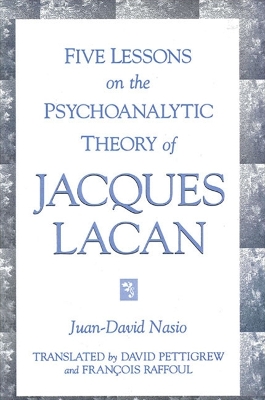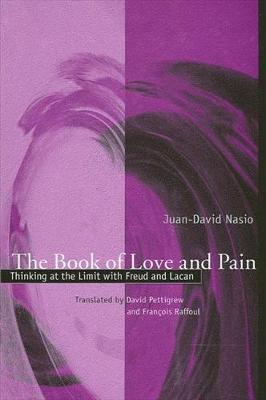SUNY series in Psychoanalysis and Culture
2 total works
Five Lessons on the Psychoanalytic Theory of Jacques Lacan
by Juan-David Nasio
Published 10 July 1998
Five Lessons on the Psychoanalytic Theory of Jacques Lacan is the first English translation of a classic text by one of the foremost commentators on Lacan's work. Juan-David Nasio makes numerous theoretical advances and eloquently demonstrates the clinical and practical import of Lacan's theory, even in its most difficult or obscure moments. What is distinctive, in the end, about Nasio's treatment of Lacan's theory is the extent to which Lacan's fundamental concepts—the unconscious, jouissance, and the body—become the locus of the overturning or exceeding of the discrete boundaries of the individual. The recognition of the implications of Lacan's psychoanalytic theory, then, brings the analyst to adopt what Nasio calls a "special listening."
In The Book of Love and Pain, Juan-David Nasio offers the first exclusive treatment of psychic pain in Freudian and Lacanian psychoanalytic literature. Using insights gained from more than three decades as a practicing psychoanalyst, Nasio addresses the limits faced by the analyst in attempting to think and treat pain psychoanalytically. He suggests that while pain is about separation and loss, psychic pain is intensified by paradoxical overinvestment in the lost loved one. Included are discussions of the pain of mourning, the pain of jouissance, unconscious pain, pain as an object of the drive, pain as a form of sexuality, pain and the scream, and the pain of silence. In offering a phenomenological description of psychic pain, The Book of Love and Pain fills a gaping void in psychoanalytic research and will play an important role in our understanding of the human psyche.

